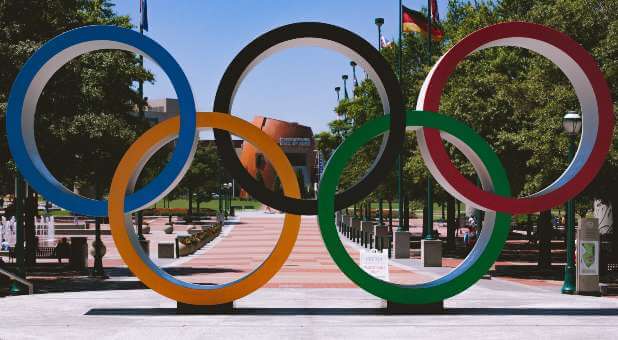A few years ago, I traveled from Israel to the U.S. with a layover in Munich. I had never been to Germany, but because of its history, vis-a-vis for Jews, the idea of being there made me uncomfortable.
Munich is, and always will be, defined by the Palestinian Arab hostage-taking, terrorist attack, botched rescue and murder of 11 Israeli athletes 49 years ago this week at the Munich Olympics. For a country known for its precision, Germany’s lack of preparedness was particularly egregious. It’s unimaginable how three decades before, when they had made genocide systematic, that they were unable, or unwilling, to protect the athletes.
The terrorist attack began in the early morning of September 5. As the athletes slept, eight Palestinian Arab terrorists wearing track suits scaled a two-meter fence to sneak into the Olympic Village, carrying bags loaded with assault rifles, pistols and grenades.
After murdering two of the 11 Israeli athletes immediately, they took the nine additional members of the Israeli Olympic team hostage.
Shockingly, the games carried on as normal, oblivious to or indifferent about the attack taking place nearby. The games continued until pressure on the IOC forced a suspension, some twelve hours after the first athlete had been murdered.
German negotiators demanded direct contact with the hostages to show that the Israelis were alive. Fencing coach Andre Spitzer, who spoke fluent German, and shooting coach Kehat Shorr, the senior member of the Israeli delegation, spoke briefly with German officials from a second-floor window. When Spitzer attempted to answer a question, he was clubbed with the butt of a rifle, filmed on live television, and dragged from the window.
While all this was happening, news reports indicated that the hostages were alive and the terrorists had been killed. American broadcaster Jim McKay was reporting live when he received confirmation of the massacre. “We just got the final word … you know, when I was a kid, my father used to say, ‘Our greatest hopes and our worst fears are seldom realized.’ Our worst fears have been realized tonight. They’ve now said that there were eleven hostages. Two were killed in their rooms yesterday morning, nine were killed at the airport tonight. They’re all gone.”
For decades, victims’ families appealed to the IOC to establish a permanent memorial. For decades, the IOC declined, worried that a memorial to the victims could “alienate other members of the Olympic community.” Finally, the IOC conceded, honoring the Israeli victims before the 2016 Rio games. This year in Tokyo, finally, there was a minute of silence at the opening ceremony. Each of the Munich victims had full lives and left behind families and legacies that should not be forgotten: David Berger, Zeev Friedman, Yosef Gutfreund, Eliezer Halfin, Yosef Romano, Amitzur Shapira, Kehat Shorr, Mark Slavin, Andre Spitzer, Yakov Springer and Moshe Weinberg.
In remembering the victims, there is nonetheless inspiration. This year Israel won a record number of medals at the Tokyo Olympics, but challenges of being an Israeli and Jewish athlete on the world stage still persist.{eoa}
Jonathan Feldstein was born and educated in the U.S. and immigrated to Israel in 2004. He is married and the father of six. Throughout his life and career, he has been blessed by the calling to fellowship with Christian supporters of Israel and shares experiences of living as an Orthodox Jew in Israel. He is president of the Genesis 123 Foundation, which builds bridges between Jews and Christians, and writes regularly for a variety of prominent Christian and conservative websites. Inspiration from Zion is the popular webinar series and podcast that he hosts. He can be reached at [email protected].
Read articles like this one and other Spirit-led content in our new platform, CHARISMA PLUS.











































